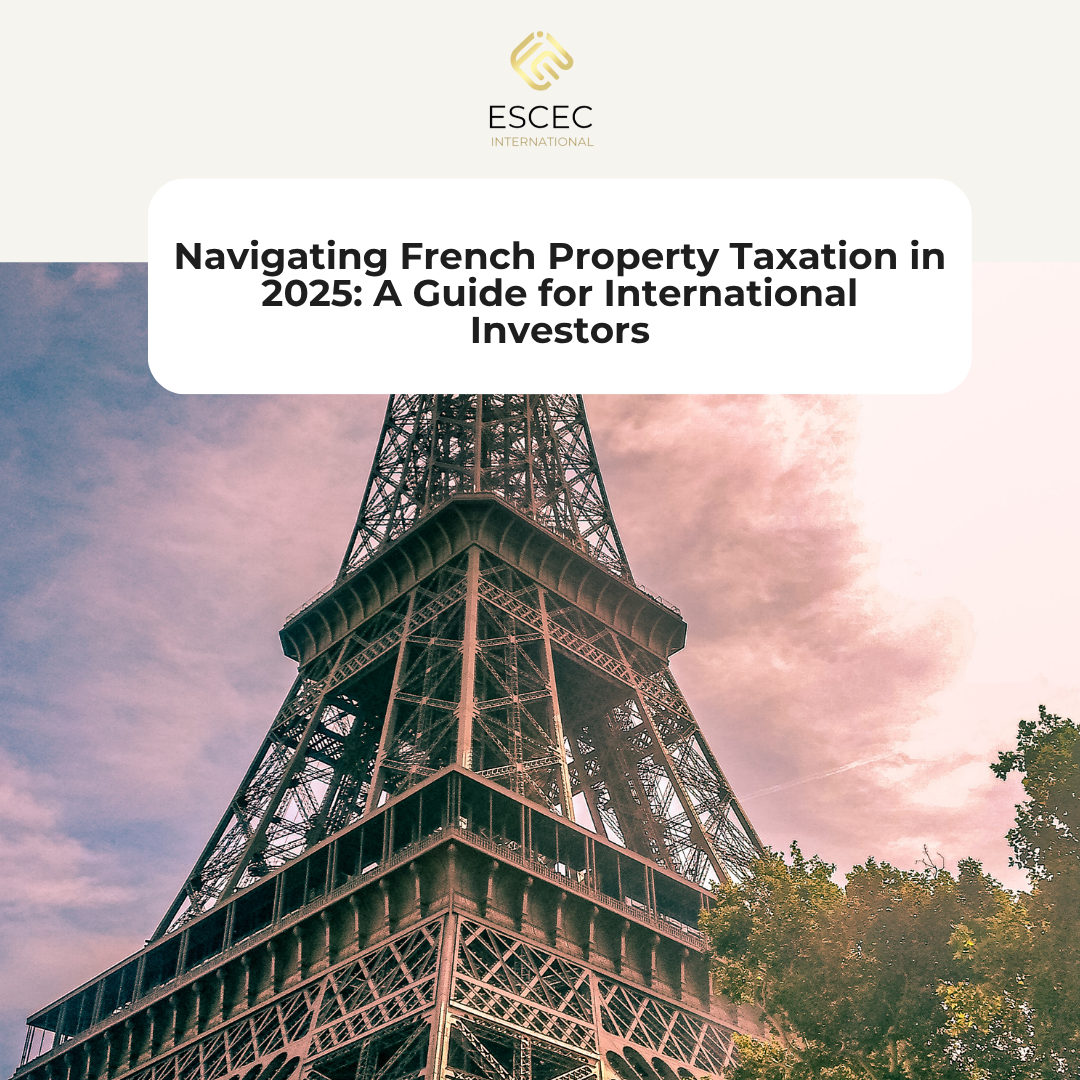Navigating French Property Taxation in 2025: A Guide for International Investors
As of October 2025, property taxation in France has undergone several notable changes, impacting both residents and non-residents. This guide provides an overview of the key tax obligations and recent reforms affecting property owners, with a focus on implications for international investors.
Key Property Taxes in France
1. Taxe Foncière (Land Tax)
Taxe foncière is an annual local property tax levied on land and buildings. In 2025, property owners received their tax notices in August or September, with the payment deadline set for October 20 for online payments via impots.gouv.fr (service-public.gouv.fr). Payments can be made in a lump sum or, if pre-arranged, in ten monthly installments starting from January of the following year (connexionfrance.com).
2. Taxe d’Habitation (Residence Tax)
This tax applies to individuals occupying a property as their main residence. However, significant reforms have been implemented, leading to a gradual phase-out of taxe d’habitation for primary residences. By 2025, most primary residences are exempt, though second homes remain subject to this tax.
3. Wealth Tax (Impôt sur la Fortune Immobilière – IFI)
The IFI targets individuals whose real estate assets in France exceed €1.3 million. Non-residents are liable for IFI on their French property holdings, while residents are taxed on their worldwide real estate assets. Notably, a five-year partial exemption applies to individuals relocating to France, covering assets outside the country.
4. Capital Gains Tax (CGT) on Property Sales
When selling a property, capital gains are subject to a flat rate of 19%, plus social charges of 17.2%, totaling 36.2%. However, exemptions are available: after 22 years of ownership, capital gains tax is fully exempted, and after 30 years, social charges are also exempted
Recent Reforms and Legislative Changes
Finance Bill 2025
The French Finance Bill for 2025 introduces several significant tax changes:
-
Corporate Tax Surcharge: A temporary corporate income tax (CIT) surcharge has been introduced for companies with revenue exceeding €1 billion, effective from fiscal year 2025. The surcharge rate is 20.6% for revenues between €1 billion and €3 billion, and 41.2% for revenues exceeding €3 billion.
-
Differential Contribution on High Incomes (DCHI): A new contribution applies to individuals with a reference tax income exceeding €250,000 for singles and €500,000 for couples, aiming to raise additional revenue (europeantax.blog).
Property Acquisition Costs
From April 2025, notary fees, including stamp duty, have increased by up to 0.5 percentage points, depending on the local commune. This change affects the overall cost of property transactions.
Implications for International Investors
-
Tax Residency Considerations: Non-residents are primarily subject to property-related taxes, while residents face additional obligations on worldwide assets. Understanding the nuances of tax residency is crucial for compliance and tax planning.
-
Strategic Planning: Investors should consider the timing of property acquisitions and sales to benefit from exemptions on capital gains and social charges. Long-term ownership can lead to significant tax savings.
-
Consultation with Tax Advisors: Given the complexity of French tax laws and the recent legislative changes, consulting with tax professionals is advisable to navigate the evolving tax landscape effectively.
For personalized advice and detailed information tailored to your specific situation, please contact ESCEC International. If you need help navigating French property taxation, talk with us at ESCEC International.

